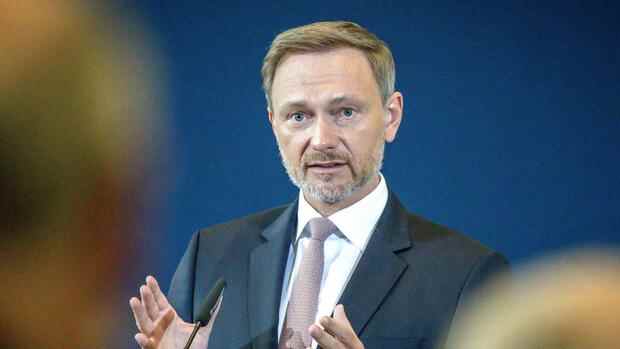There is resistance to the Finance Minister’s proposal.
(Photo: dpa)
Berlin The Association of International Motor Vehicle Manufacturers (VDIK) has opposed statements by Federal Finance Minister Christian Lindner (FDP) for an early cancellation of e-car purchase premiums. “For good reason, in order to achieve the national climate targets, the governing parties announced in the coalition agreement that the purchase bonus for electric cars would be further developed and continued until 2025,” said VDIK President Reinhard Zirpel.
The manufacturers of electric vehicles and their customers would rely on it. “An abrupt end to the e-car premium would therefore mean a serious breach of trust.”
Zirpel warned of a slump in the German market for e-cars and of increasing CO2 emissions from traffic. “The discussion alone about an end to purchase premiums for electric vehicles is already leading to massive uncertainty. The federal government should end this speculation immediately,” he said of the corresponding announcements by Federal Finance Minister Lindner.
He had spoken out in favor of abolishing purchase premiums for electric cars. “We simply can no longer afford misguided subsidies,” he told the “Welt am Sonntag” – referring to the promotion of plug-in hybrids as well as purely electric vehicles.
Top jobs of the day
Find the best jobs now and
be notified by email.
“So far, the cars have been subsidized with up to 20,000 euros over their lifetime, even for top earners. This is too much. We can save billions that we can use more sensibly.”
The Green Federal Economics Minister Robert Habeck had announced that he would at least stop funding for plug-in hybrids with effect from December 31, 2022. Habeck argues that the technology is “marketable”, meaning that it no longer requires any subsidies.
Consumers have to reckon with months of waiting
The ADAC demanded planning security from the federal government. “Against the background of the funding, many consumers have already ordered an electric vehicle,” said Transport President Gerhard Hillebrand.
For most models, the delivery times extend well into the next year, so that the planned state subsidy threatens to be dropped. So far there has been no indication that the federal government intends to stop subsidies for purely battery-powered new cars from next year.” Lindner’s proposal is unacceptable in view of the political expectations.
Car buyers are currently having to put up with months of waiting due to delivery problems and high demand. A cessation of funding in the meantime would mean a nasty surprise. Because the car must already have been delivered and approved for the funding application to the Federal Office of Economics and Export Control (BAFA).
Currently there are still bonuses of up to 9000 euros for e-cars and up to 6750 euros for plug-in hybrids. According to the previous planning, there should also be a lower premium for new pure electric cars from 2023 to the end of 2025: initially 4000 euros and from 2024 3000 euros.
At the same time, the current price threshold of 40,000 euros is to be dropped. For young used e-cars it should be 3200 and 2400 euros.
More: From the ecological charging station for e-cars to the solar system – these ten start-ups promise homeowners more energy efficiency
